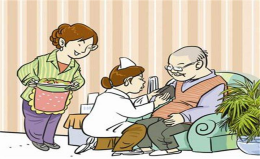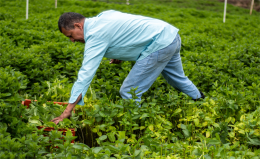In Order to Combat the Aging Population, Our Country Has Begun to Take Action
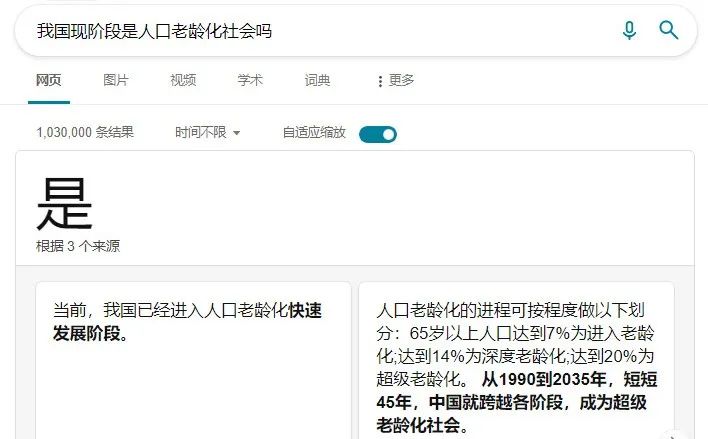
The Report on the Work of the Government in 2022 states: "We will actively respond to the aging population, optimize the supply of elderly services in urban and rural areas, and promote high-quality development of causes and industries for the elderly." Coping with an ageing population has become a national strategy.
The pressure of population aging in the 14th Five-Year Plan period is greater than that in the 13th Five-Year Plan period. The 1962-1976 baby boomer population will age in the next five to 10 years. It is expected that the super aging society will take up more than 20 percent of the population in 2033, and then continue to rise rapidly to 35 percent in 2060.
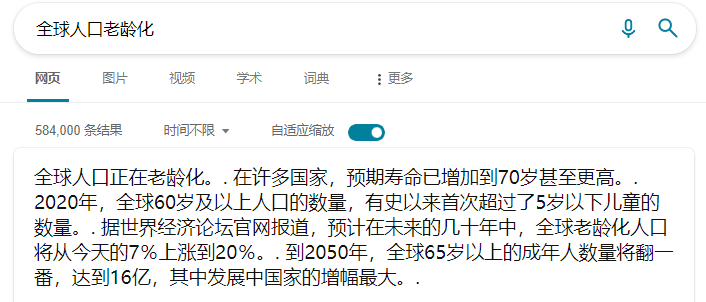
Population aging has become a global phenomenon, but the scale, depth and speed of population aging in China are large.
The aging trend of China's population will show five characteristics
1. The elderly population is huge.
In 2020, China's population aged over 65 will reach 191 million, accounting for 13.5% of the total population. There will be one Chinese in every four elderly people in the world. It is estimated that in 2057, the population above 65 years old in China will peak at 425 million, accounting for 32.9% to 37.6% of the total population.
2. the aging speed is fast.
In 2001, the population over 65 years old in China exceeded 7%, indicating that China entered the aging society. It took 21 years, namely 2021, to enter the deep aging society, when the population aged 65 or above accounted for more than 14%, which is shorter than 126 years in France, 46 years in the United Kingdom and 40 years in Germany.

3. Aging and empty-nest are becoming increasingly prominent.
The population aged 80 or above in China is 36.6 million in 2020 and is expected to increase to 159 million in 2050. The elderly may face more serious health problems, and the growth of empty-nesters and elderly people living alone will weaken the function of family care.
4. The old-age dependency ratio has increased significantly, increasing the burden of pension.
The elderly dependency ratio is 19.7 percent in 2020 and is expected to exceed 50 percent in 2050, meaning that every two young people need to support one elderly person. The high cost of raising the old and the young puts pressure on both sides.
5. Get old before you get rich.
China's per capita GDP is close to the lower limit of developed economies, but its aging rate of 13.5% is already higher than the average level of 10.8% of middle and high-income economies, and it will face the double pressure of economic growth and pension burden.

Chapter 45 Implementation of the National Strategy to actively cope with the aging population
Formulate a long-term strategy for population development, optimize the family policy, improve the population service system with a focus on "one old, one old and one young," and promote long-term and balanced population development.
Section 1 Promoting the realization of an appropriate fertility level
Make birth policies more inclusive, coordinate them with economic and social policies, reduce the burden of family birth, parenting and education, and unleash the potential of birth policies.
Improve policies on child rearing, youth development, support for the elderly, and care for the sick and disabled, as well as the maternity leave system, and explore ways to implement parental leave. We will improve the full range of services for healthy and healthy childbirth, strengthen pre-pregnancy and perinatal health services, and improve the quality of births.
Establish and improve a comprehensive support system for families with special difficulties in family planning. We will reform and improve the population statistics and monitoring system, and closely monitor the fertility situation.
Deepen research on population development strategies and improve the integrated decision-making mechanism for population and development.
Section 2 Improving the policies for infant and child development
Develop the universal childcare service system and improve the policy system to support infant care services and early development.
Strengthen support and guidance for family care and community services, and strengthen families' ability to raise children in a scientific way.
Strictly implement the policy on supporting parks in urban communities, actively develop various forms of infant care services, encourage qualified employers to provide infant care services, support enterprises, public institutions, social organizations and other social forces to provide universal childcare services, and encourage kindergartens to develop integrated childcare services.
Promote the professional and standardized development of infant care services, and improve the quality and level of childcare and education.
Section 3 Improving the old-age service system
Promote the coordinated development of old-age services and the old-age care industry, improve the basic old-age services system, vigorously develop inclusive old-age services, support families in assuming the role of old-age care, and build a system of old-age services in which family community institutions are coordinated and medical care and nursing care are integrated.
Improve the community home care service network, promote the renovation of public facilities for aging, encourage professional institutions to extend their services to communities, and integrate and utilize existing resources to develop community embedded care services.
Strengthen bottom-line guarantees for disabled and partially disabled elderly people in extreme poverty, and actively develop mutual assistance for the elderly such as rural mutual assistance and happiness homes.
Deepen the reform of public institutions for the elderly, improve their service capacity and level, improve the management mechanism of public and private institutions, support the transformation of training and nursing resources to develop the elderly, strengthen policy support for nursing private institutions for the elderly, and carry out a special action to benefit urban and enterprises for the elderly.
Strengthen health services for the elderly and promote the integration of medical care, health care and rehabilitation.
Strengthen the training of nursing personnel, expand the supply of nursing beds in nursing institutions, and increase the proportion of nursing beds in nursing institutions to 55%, so as to better meet the needs of nursing services for the disabled and mentally retarded elderly. We will gradually improve the welfare of the elderly, improve the system of subsidies for the elderly with financial difficulties and the system of visiting and caring for the elderly with special difficulties.
Improve the comprehensive supervision system for elderly care services.
Build a social environment that supports elderly care, filial piety and respect, and strengthen protection of the rights and interests of the elderly. Taking into account factors such as the increase in average life expectancy, the accelerating aging of the population, the increase in the number of years of schooling, and the change in the structure of the labor force, we will gradually extend the mandatory retirement age in accordance with the principles of small adjustments, flexible implementation, classification, and overall consideration, so as to make full use of human resources.
Develop the silver economy, develop age-appropriate technologies and products, and foster new forms of business such as smart elderly care.
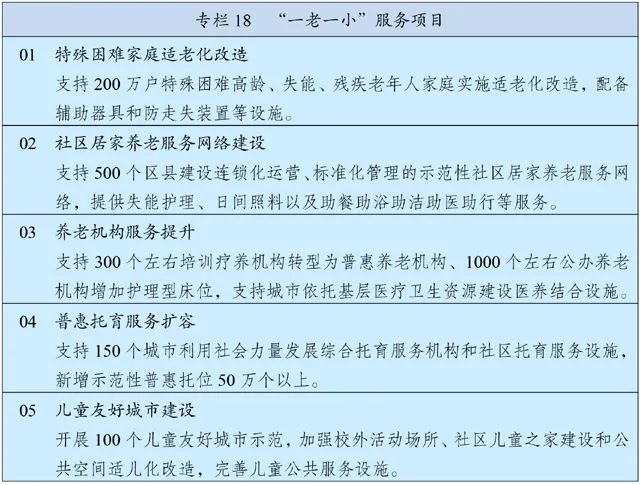

Our country has already classified aging population as one of the important programs for strategic development of our country in the 14th five-year plan. The three-child policy is a kind of family planning policy to be implemented actively in response to the aging population. By increasing the birth rate to combat the accelerating aging of the population. Support the development of a silver economy and the development of age-appropriate technologies and products to better cope with the advent of an ageing society. We will improve the community home care service network, and invest more energy in the care of the elderly, so that all the elderly will have something to support, something to rely on, something to enjoy and something to live in.
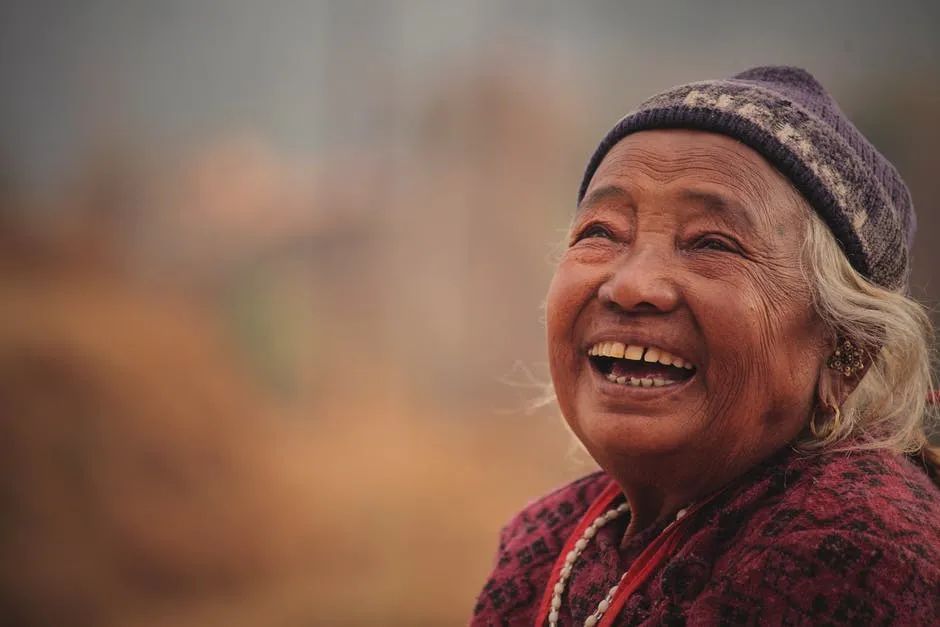
At present, at the present stage, there are still many gaps in the exploration of community pension in our country. Under the support of national policies, our company only means on the community pension, have a new idea. According to the national policy and the basic situation of Chinese society, under the guidance of Professor Ding Qingai, deputy leader of the expert group of Naval General Hospital and an expert in the guidance of pre-adaptation treatment, Weiyi Kang researched and designed a new pension model ------ Yiling community.

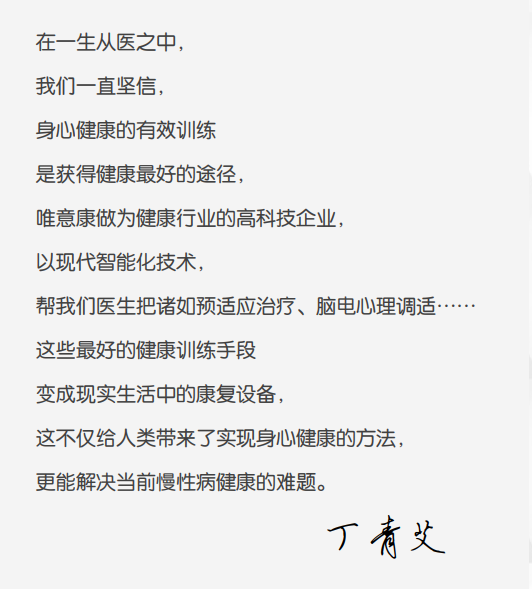
Yiling Community is a new type of community pension with physical and mental health training as the core. Yiling Community will create a whole intelligent, digital, comfortable experience as the goal of the living space. Our independent research and development of intelligent aging equipment and products will be widely used in Yiling community, please look forward to!


